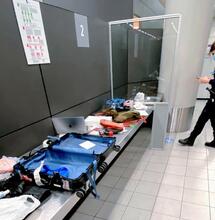Spain Enacts Ban on HHC, THC-O, Synthetic Cannabinoids

The Spanish Ministry of Health has updated its controlled substances list. As of April 22, 2025, semi-synthetic cannabinoids such as HHC, THC-O and their derivatives are no longer legal, along with few other psychotropic substances that have been circulating lately in Europe.
Synthetic Cannabinoids Are No Longer Legal in Spain
Spain’s authorities have decided to extend the list of controlled substances with a range of cannabinoids that were being marketed as legal alternatives to THC. The cannabinoids that are no longer viewed legal include:
- HHC (hexahydrocannabinol)
- HHC-O (HHC acetate)
- HHCP and HHCP-O
- THCP, THCP-O
- THC-O (THC acetate)
- Delta-8-THC-C8 and delta-9-THC-C8
- H4-CBD (hydrocannabinol or tetrahydrocannabidiol)
Although these cannabinoids have gained popularity on the European market as “legal cannabinoids,” authorities have decided to take restrictive measures, citing health risks.
Along with the synthetic cannabinoids, a range of other chemical compounds considered dangerous to public health and with no recognized therapeutic use have been banned. These include psychotropic substances added by UN decision, 2-Fluorodechloroketamine (2-FDCK), Bromazolam and others. Also on the list is Dipentylone (bk-DMBDP), which is a Schedule I substance in the U.S.
Why Are HHC and Other Cannabinoids Banned?
According to the published order, the compounds in question have been flagged by the European Union’s Early Warning System, and are registered in the European Database on New Drugs (EDND), indicating a growing concern about their adverse effects, both in the short and long term. There is no comprehensive clinical research on these compounds and they are not authorized as drugs. They may produce THC-like effects, such as euphoria, anxiety or rapid heartbeat, but their safety profile and potency remain unclear.
What Are the Implications of the Ban?
With the recent regulatory update, health and police authorities in Spain now have the ability to intervene when they detect synthetic weed products. They can take legal action against establishments or individuals who are involved in manufacturing, distributing, commercializing, possessing or dispensing cannabinoids like HHC and THC-O in Spain.
The decision marks a turning point in the debate on synthetic and semi-synthetic cannabinoids. While the use of regulated medical cannabis is advancing in Europe, unregulated compounds of uncertain origin are coming under increased scrutiny.
Also read on Soft Secrets:









